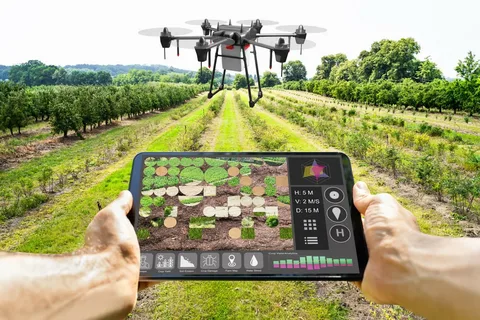Agriculture, the backbone of human civilization, has been evolving for centuries. Today, technology is driving a revolutionary shift in farming practices, leading to the rise of precision farming and smart agriculture. This modern approach not only increases productivity but also promotes sustainability and resource efficiency.
What is Precision Farming?
Precision farming refers to the use of technology to monitor and optimize crop production. Unlike traditional farming methods, which rely on uniform treatment across fields, precision farming allows farmers to make data-driven decisions. Tools such as GPS-enabled equipment, soil sensors, and drones help farmers understand the unique conditions of each part of their fields. This enables targeted irrigation, fertilization, and pest control, reducing waste and enhancing crop yield.
The Role of Smart Agriculture
Smart agriculture complements precision farming by integrating Internet of Things (IoT) devices, artificial intelligence (AI), and data analytics into farming operations. Smart sensors can track soil moisture, weather patterns, and crop health in real-time, while AI algorithms provide actionable insights for decision-making. This approach ensures optimal resource use, lowers operational costs, and reduces environmental impact.
Benefits of Precision Farming and Smart Agriculture
- Increased Efficiency: Farmers can apply water, fertilizers, and pesticides only where needed, avoiding overuse.
- Higher Crop Yields: Accurate monitoring and timely interventions help plants grow healthier and more productive.
- Sustainability: Reduced chemical usage and optimized water management contribute to environmental conservation.
- Cost Savings: Automation and precise resource management lower overall production costs.
Future Trends in Modern Farming
The future of precision farming and smart agriculture looks promising with advancements in technology. Innovations such as autonomous tractors, satellite imagery, and AI-driven predictive models are making farming smarter and more sustainable. By embracing these modern approaches, farmers can meet the growing global demand for food while protecting natural resources.
Conclusion
In conclusion, precision farming and smart agriculture represent a modern approach to agriculture that merges technology with traditional farming practices. This synergy not only enhances productivity and profitability but also ensures a sustainable future for agriculture. Farmers worldwide are increasingly adopting these methods to cultivate smarter, more resilient, and environmentally conscious farms.


